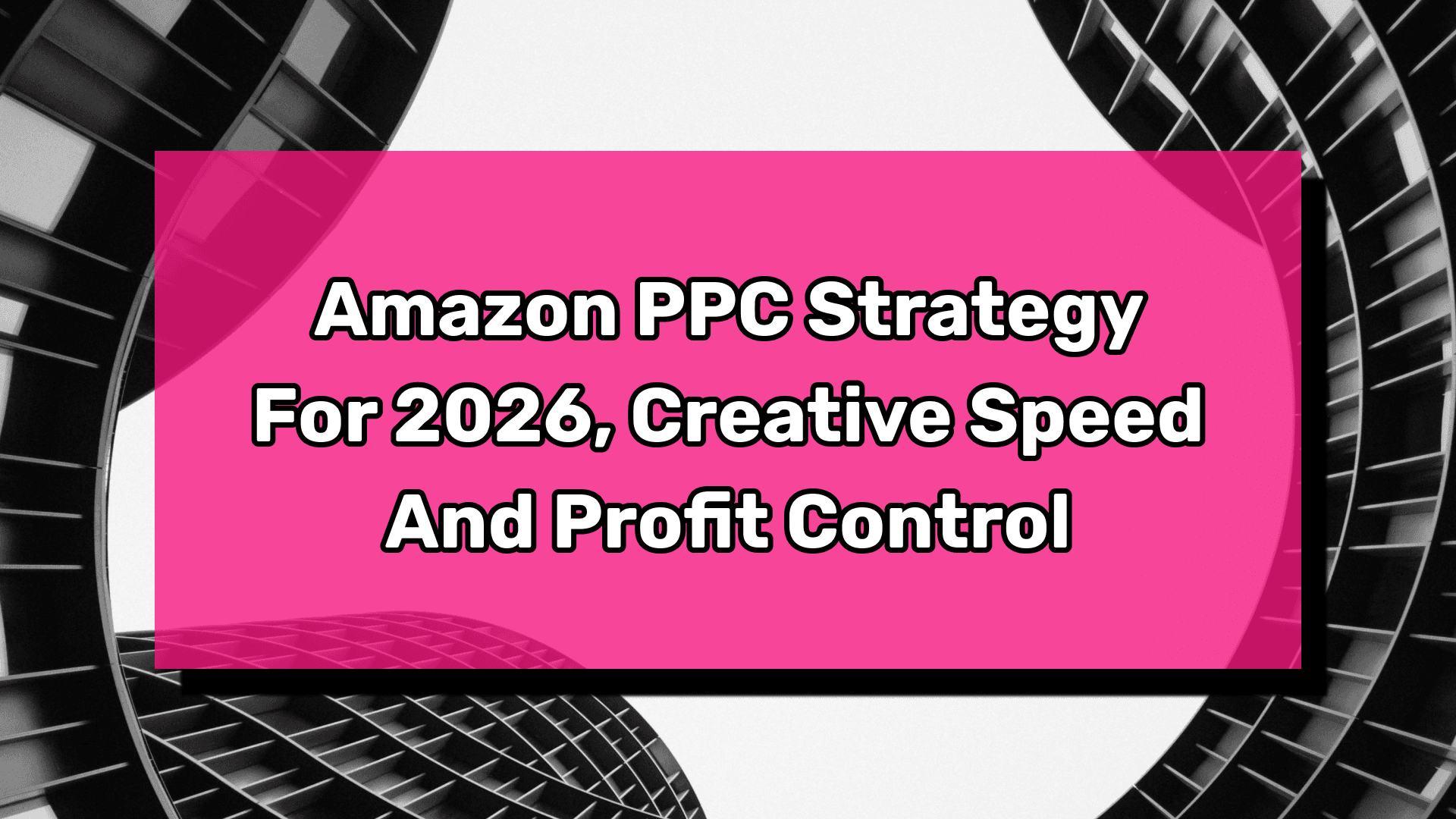The consumer's attention span is shorter than ever, and e-commerce sellers are constantly seeking innovative ways to stand out and connect with their customers. One powerful strategy that has emerged as a game-changer is e-commerce marketing automation. This transformative approach is not just about keeping up with trends; it's about setting the pace and staying ahead in the game. As we get into the world of e-commerce marketing automation, let's explore why it's become the secret weapon for e-commerce sellers across the United States.
The Power of Automation in E-Commerce
"E-commerce marketing automation is like having a tireless team working around the clock, ensuring that no opportunity to engage a customer is missed."
At its core, e-commerce marketing automation involves using software tools to automate repetitive marketing tasks, streamline workflows, and personalize customer interactions. From triggering targeted email campaigns to segmenting customers based on their behavior, automation tools are reshaping how online sellers connect with their audience.
The journey of marketing automation begins with understanding its fundamental components: triggers, conditions, and actions. Imagine launching a sales program where discounts are offered based on customer spending. With automation, once a customer's purchase meets a specific condition (e.g., exceeding $5,000 in lifetime spending), the system automatically segments them into a rewards group, applying the corresponding discount without any manual intervention. This seamless process not only enhances efficiency but also ensures a personalized shopping experience for each customer.

Why E-Commerce Marketing Automation?
The benefits of e-commerce marketing automation extend far beyond saving time and reducing manual effort. It represents a strategic shift towards more personalized, efficient, and data-driven marketing efforts. Here are some compelling reasons why e-commerce sellers should adopt marketing automation:
Personalized Customer Experience: By analyzing customer data and behavior, automation tools enable sellers to deliver personalized product recommendations and tailored content, significantly enhancing the customer experience and boosting sales.
Efficient Operations: Automation transforms time-consuming tasks such as email marketing, inventory management, and customer segmentation into streamlined, automated processes, freeing up time for strategic planning and creative endeavors.
Data-Driven Decisions: With access to detailed analytics and reports, e-commerce sellers can make informed decisions about their marketing strategies, optimizing campaigns for better engagement and higher conversion rates.
E-Commerce Marketing Automation Best Practices
To maximize the potential of e-commerce marketing automation, it's crucial to follow best practices that ensure successful implementation and ongoing success:
Start with a Clear Strategy: Before diving into automation, define your goals, identify key performance indicators (KPIs), and understand your audience. This strategic approach will guide your automation efforts and ensure they align with your business objectives.
Segment Your Audience: Use automation tools to segment your customers based on their behaviors, preferences, and purchase history. This enables you to create targeted campaigns that resonate with different segments, increasing relevance and engagement.
Personalize Your Communications: Leverage automation to personalize emails, product recommendations, and content. Personalization is key to enhancing the customer experience and driving conversions.
Test and Optimize: Continuously test different aspects of your automated campaigns, from email subject lines to landing pages. Use the insights gained to optimize your strategies for better performance.
Keep It Human: While automation offers numerous advantages, it's essential to maintain a human touch in your communications. Personalized messages, thoughtful recommendations, and responsive customer service can make all the difference.

E-Commerce Marketing Automation Benefits
The implementation of e-commerce marketing automation brings a host of benefits, making it an indispensable tool for online sellers. These benefits include:
Higher Efficiency and Productivity: Automating repetitive tasks allows e-commerce sellers to focus on strategic activities that drive growth and innovation.
Improved Customer Retention: By providing personalized experiences and timely engagement, automation helps in building stronger relationships with customers, encouraging loyalty and repeat purchases.
Increased Sales: With targeted marketing campaigns and personalized product recommendations, e-commerce sellers can see a significant boost in sales and revenue.
Reduced Errors: Automation minimizes the risk of human error in marketing campaigns and data management, ensuring accuracy and consistency in customer communications.
"E-commerce marketing automation stands out as the smartest choice for online sellers, offering a way to streamline operations, enhance customer engagement, and ultimately drive more sales."
As we've explored the vast landscape of e-commerce marketing automation, it's clear that this technology is not just a trend but a fundamental shift in how e-commerce businesses engage with their customers. By adopting automation, online sellers can unlock new levels of efficiency, personalization, and growth, ensuring they not only survive but thrive in the competitive marketplace.
E-Commerce Marketing Automation: Unleashing Its Full Potential
Now, let's dive deeper into the practical applications of marketing automation, showcasing how e-commerce sellers are using this technology to increase sales.
Advanced Strategies for E-Commerce Marketing Automation
To fully harness the power of e-commerce marketing automation, sellers must go beyond the basics and implement advanced strategies that captivate their audience and drive meaningful engagement.
Lifecycle Email Campaigns: Implement automated email sequences that cater to different stages of the customer journey, from welcome series for new subscribers to win-back campaigns for lapsed customers. As highlighted in our earlier discussions, personalized email campaigns are incredibly effective in nurturing customer relationships and encouraging repeat purchases.
Dynamic Content Personalization: Use automation tools to dynamically change the content of your website, emails, and advertisements based on user behavior and preferences. This approach ensures that customers always encounter relevant and engaging content, significantly enhancing their shopping experience.
Automated Upselling and Cross-Selling: Set up automated triggers to recommend complementary products or higher-value alternatives based on the customer's current selections. This strategy not only increases average order value but also introduces customers to a wider range of your offerings.
Customer Segmentation for Targeted Promotions: Leverage automation to segment your customers based on their purchase history, browsing behavior, and engagement levels. Tailor your promotions and discounts to these segments to maximize their impact and ROI.
Chatbots and AI for Customer Service: Integrate AI-powered chatbots to handle routine customer inquiries, provide product recommendations, and assist with order tracking. This frees up your customer service team to focus on more complex issues, ensuring a seamless and efficient support experience.

Case Studies of E-Commerce Marketing Automation Success
The benefits of marketing automation are not just theoretical. Many e-commerce sellers have seen tangible results by implementing these strategies:
Automated Welcome Series: An e-commerce store specializing in outdoor gear implemented an automated welcome email series for new subscribers, offering valuable content along with a one-time discount. This approach resulted in a 25% increase in conversion rates for new subscribers.
Behavior-Based Email Campaigns: A beauty products retailer used automation to send emails to customers who browsed specific product categories without making a purchase, including personalized product recommendations. This strategy led to a 30% uplift in re-engagement and conversion.
AI-Driven Customer Support: By integrating AI chatbots for initial customer inquiries, an electronics e-commerce site was able to reduce response times by 70%, significantly improving customer satisfaction and loyalty.
The Future of E-Commerce Marketing Automation
As technology continues to evolve, so too will the capabilities of e-commerce marketing automation. Sellers can look forward to more advanced AI and machine learning algorithms that offer even deeper insights into customer behavior, enabling hyper-personalized marketing strategies that were previously unimaginable.
Furthermore, integration with emerging technologies such as augmented reality (AR) and virtual reality (VR) will provide new avenues for engaging customers and offering immersive shopping experiences. The potential for e-commerce marketing automation is boundless, and the sellers who embrace these advancements will be the ones who lead the pack.

Embracing Change for Future Success
"E-commerce marketing automation is not just about optimizing the present; it's about unlocking the future." - Reflecting on this journey, it's clear that automation is more than a tool; it's a strategic partner for e-commerce sellers aiming to innovate, connect, and grow in an ever-changing e-commerce landscape.
As you consider integrating more advanced marketing automation strategies into your e-commerce business, remember that the goal is not just to automate for efficiency but to personalize for impact. By doing so, you can build deeper connections with your customers, crafting experiences that delight, engage, and inspire loyalty.
In conclusion, e-commerce marketing automation offers a world of opportunities for sellers to enhance their operations, marketing, and customer service efforts. By staying informed, experimenting with new strategies, and always prioritizing the customer experience, e-commerce businesses can leverage automation to not just succeed but truly excel in the e-commerce marketplace. The future of e-commerce is automated, personalized, and incredibly exciting. The question is, are you ready to be a part of it?








